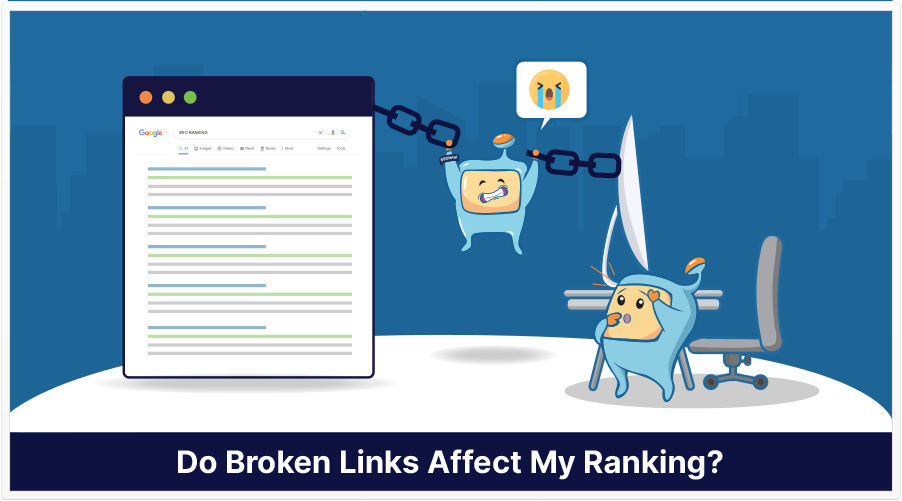
If you’ve been in search engine optimization (SEO) for any length of time, you’ve probably heard that ‘broken links are bad.’
And from a usability perspective, that’s understandable. You click on a link and…either nothing happens or you’re taken to a 404.
We can define a broken link as a link that, for some reason, doesn’t do what’s intended. In most cases, it’s either not coded properly (the HTML is erroneous), or it goes to a page that doesn’t exist anymore.
In my opinion, in the case where it goes to a page that doesn’t exist anymore, it’s not that there’s anything wrong with the coding of the link per se, but rather that the intended page isn’t there, and hence, the intended page is a 404.
But anyway, broken links are, of course, undesirable. They can be a bit jarring and frustrating for users, and for search bots like Google’s…well…what’s Googlebot supposed to do when it comes across one?
Until now, you probably thought that would have a negative effect on your ranking. Well…
This brings us to a question someone asked of John Mueller, who’s a Search Advocate at Google. During the August 27th English Q&A session, at around the 47:00 minute mark, a participant basically asked, “Regarding broken links that are crawled that link to pages that are no longer indexed, do those errors affect my ranking?”
John Mueller’s answer was, “No, so if these are old links that are no longer on your site, they definitely wouldn’t be affecting the ranking.”
Surprised? Maybe it’s not so surprising if you know the reasoning.
The Explanation
John went on to explain: “It’s very normal for a website, when we crawl it, to have a lot of 404 errors just from old urls that we know about that maybe don’t have any content anymore, and that’s perfectly fine.”
It’s Nice That That’s The Case, But…
Of course, broken links can still be a jarring experience, so from a usability perspective, it’s good that they’re minimized. There are certain tools you can use to try to discover broken links on your site.
And also, one thing that some webmasters do is, when they find that there are 404 pages on their site, they create 301 redirects to appropriate current pages.
So, for example, if Page A is a 404 page, and Page A1 is a current, updated version of what Page A used to be, a good webmaster can do a 301 redirect from Page A to Page A1.
By doing this, a person who clicks on a link to Page A will be taken to Page A1, which prevents the experience of a 404 notice. It’s also believed that this consolidates ‘link juice’ or Page Rank (which is an old term, but appropriate to use here).